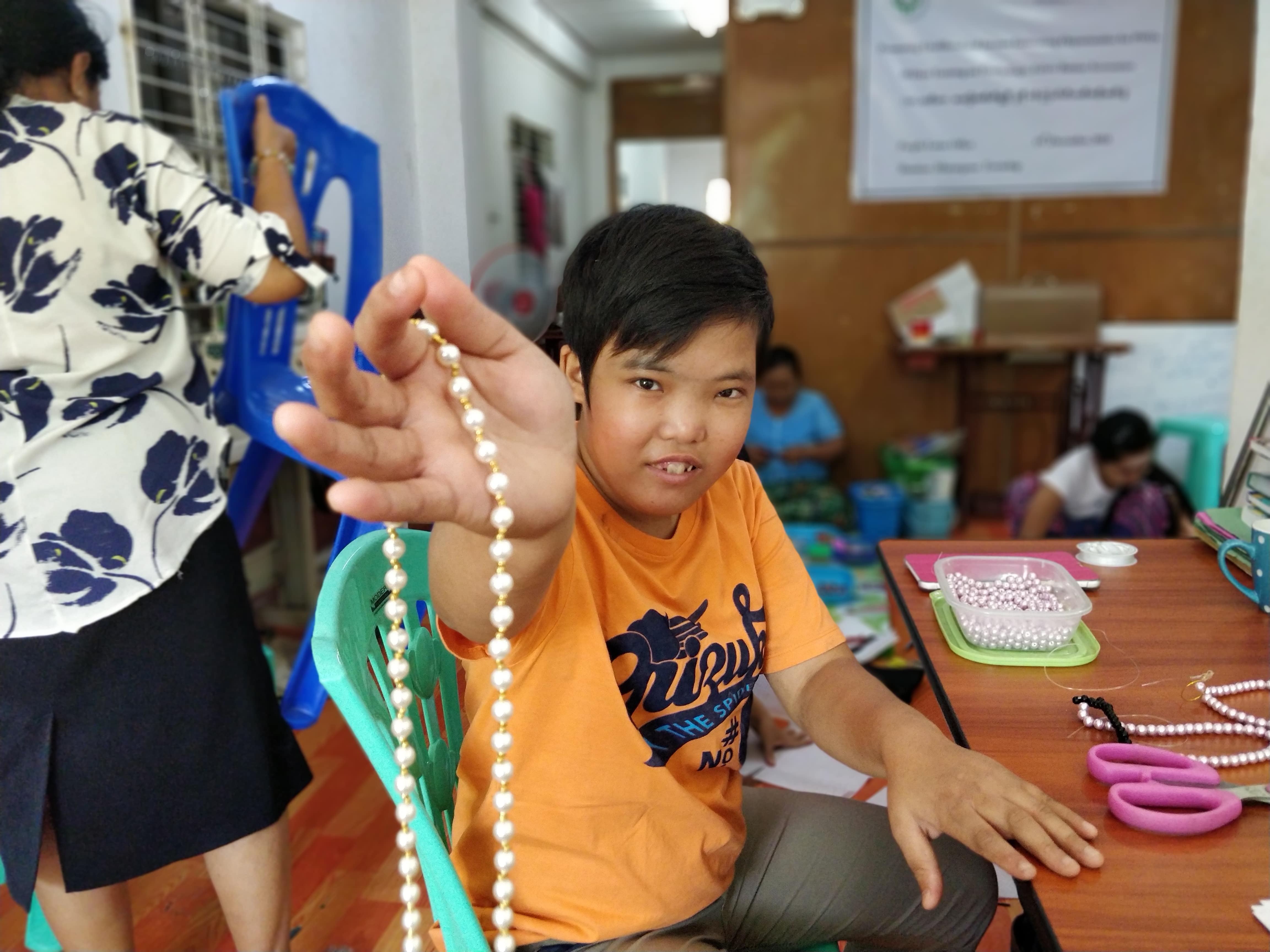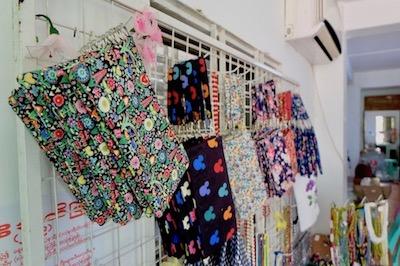
For a pair of siblings in Bago region, the year so far has been all about making sewing bags and floral buttons.
Visually impaired Naing Linn Aung, 27, and Nu Hlaing, 22, who has difficulties walking, took a free 10-day handicraft course in November.
Fresh from the training and eager to test their skills, they bought some cotton along with other materials and began touting their accessories in their township.
Now they have boosted their family income by an extra 50,000 kyats (US$32) per month.
“It was such a great opportunity,” said Naing Linn Aung, who was one of 10 people on the course, each with some form of disability.
Organized by local non-governmental organization Purple Lotus, the programme is a launch pad for people with disabilities to enter the workforce and live more independently.
Of the organisation’s 10 founders, eight are people with disabilities who met on a two-week training course held by the Myanmar Deaf Community Development Association and City Love & Hope Foundation, the philanthropic arm of supermarket City Mart.
Joined by one of the founder’s parents, they formed the group in October 2015 and devised a way to share the knowledge that they absorbed from the vocational training.
It has blossomed into six courses that cover the production of soap, bead necklaces, bracelets, sewing bags and little faux-flowers made of netting and iron.
Each course is free and taught by experienced teachers with disabilities to classes of at least 10 students across the country.
Purple Lotus is slowly expanding: 110 people from Shan and Mon states as well as Yangon, Magwe, and Bago regions have completed the courses so far.
For its 50 members who have gone on to sell their creations, it is about much more than making jewellery and soap. They open a critical channel of income and achieve a sense of empowerment rarely felt by Myanmar with disabilities.
Purple Lotus chairwoman Khin Myo Su, whose daughter has a neurological disorder, said the group takes 10 percent on every sold item to fund its operation.
“The majority of difficulties faced by people with disabilities are not caused by their own lack of capacity but by society’s misunderstanding of what they are capable of,” she said.
But Khin Myo Su believes the situation is improving for disabled people, who number 2.31 million, or 4.6 percent of the population, in Myanmar, according to the 2014 Myanmar Population and Housing Census.
Like the Purple Lotus members, disabilities among the population include hearing and physical disabilities, visual impairment and being intellectually challenged.
The census reveals a lower labour force participation rate for people with disabilities and that many cannot access education, employment and health services.
Some encouraging developments have nurtured a more buoyant outlook recently. In December, a Japanese-Myanmar initiative published a guidebook for employers in Myanmar on hiring employees with disabilities that promotes their participation in society.
Last year, the government also released regulations for the Rights of Persons with Disabilities Law, which aims to create job opportunities for people with disabilities.
“Now many people have come to know the rights of people with disabilities and have more understanding of them,” said Khin Myo Su.
She said the government also plans to establish a nationwide network of civil societies and NGOs for disabled people.
“Many opportunities are waiting for them while the government is working to promote their roles and rights,” she added.
Meanwhile, shoppers can find Purple Lotus goods on sale for 500-15,000 kyats twice monthly at pop-up stalls in City Mart 6.5 Mile and Golden Valley branches and Tamwe Ocean.
The accessories are also available at the organisation’s headquarters in 934, Mayansu Lane (between Nay La Thar restaurant and Sein store), Mayangone Township.
The growing interest in Purple Lotus is good news for Naing Linn Aung and Nu Nu Hlaing, who want to play their own part in spreading the art of handicrafts.
“We have plans to open courses for others like us and share our experience, knowledge and skills,” added Naing Linn Aung.


